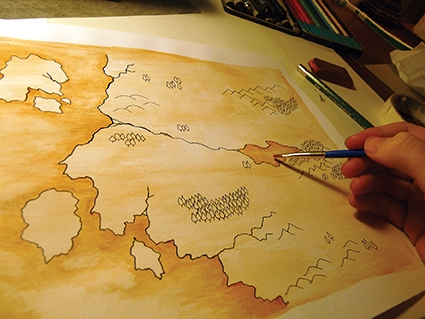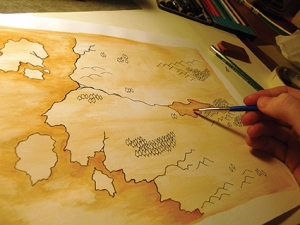History Repeating: Reshaping the Map as Georgia Distracted by Internal Concerns
OPED
While Georgian politics is busy with pre-election hassles, there are some revolutionary changes going on in the neighborhood, with the presidents of Russia and Iran having travelled to meet in Baku. Putin, Aliyev and Rouhani met to discuss the North–South Railway, the North-South energy corridor and other vital regional issues. Russian-Turkish “Bruderschaft” has been added to this, which once again confirmed the old truth that the only thing constant in the big politics is – interests. President Erdogan and President Putin reconciled, declaring Azerbaijan as a guarantee for this.
The presidents met again in Saint Petersburg and agreed that from now on Baku will be added to their mutual cooperation line and that this geometric segment between Istanbul and Moscow will transform into a triangle. To put it simply, the presidents agreed on the increased influence of Russia in Azerbaijan. To whose or what expense all this happens we can only guess from the flattering compliments that Erdogan and Putin eagerly gave each other. “Dear Friend”, “Loyal Partner” are terms that successfully substituted those threatening ones which followed the shoot-down of the Russian bomber last year.
“Welcome to Russia for this opportunity to discuss bilateral relations face to face,” President Putin told Erdogan. “Politically, the region expects a lot from us. I believe that our cooperation will play an important role in solving the regional problems,” Erdogan replied.
Before the meeting of the presidents in Baku, Russian political analysts tried to guess the meaning of “regional problems”. President Erdogan had only to confirm the accuracy of their conclusions. After the Baku mini-summit the Head of Political Research institute of CIS, Alexey Bychkov, declared that a historical decision will be made in the near future about the Karabakh conflict. “Although this decision will not be able to solve the entire Karabakh problem, it will at least set the base for opening the closed borders and giving the opportunity for people to move freely,” he said. About the same idea was voiced by the main ideologist of Putin’s policy, Markov, the director of Political Studies of Russia confirming that the opening of the railway corridor Moscow-Baku-Tehran will completely change the political configuration of not only the Caucasus but Northern and Southern politics as a whole.
It seems history is repeating itself- 100 years ago in an agreement between the Bolshevik Lenin and Ataturk, the Caucasus was completely handed over to Russia at a time Georgia was busy flirting with the third internationalist.
Today as well, while busy mocking the Olympic uniforms and counting the ratings of political parties before the upcoming elections, the map of the Caucasus is being outlined anew. The opening of the Karabakh-Azerbaijan border means that the border will be opened for Armenia, too, which will completely change the status quo built over the past 25 years, meaning that it will change the strategic importance of Georgia in the Caucasus.
The brotherhood of Moscow and Istanbul, at the expense of interests of the White House, seemingly increases the chances of Washington strengthening its positions in Georgia actionably rather than making use of useless declarations. However, since taking advantage of these opportunities means real intervention in the area of the Russian influence, it is doubtful that the current or future US Administrations will have the relevant courage and skills to do so. Even if the Turkish-American conflict cools down now, which won’t be achieved easily, the Americans will still need to think about who they can count on in the region, if their steady ally – the Turkish army - loses the role which it had for decades.
Zaza Jgarkava












